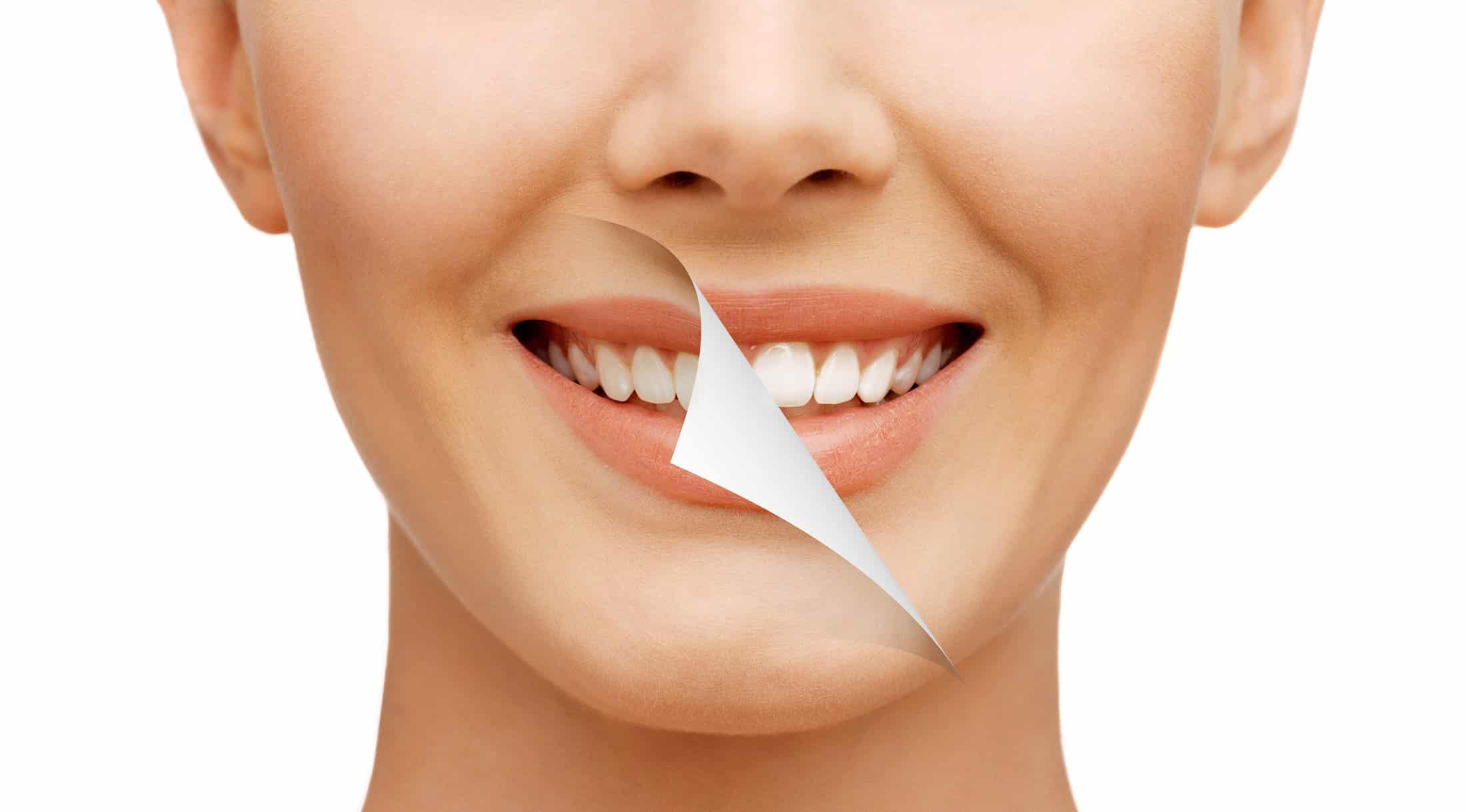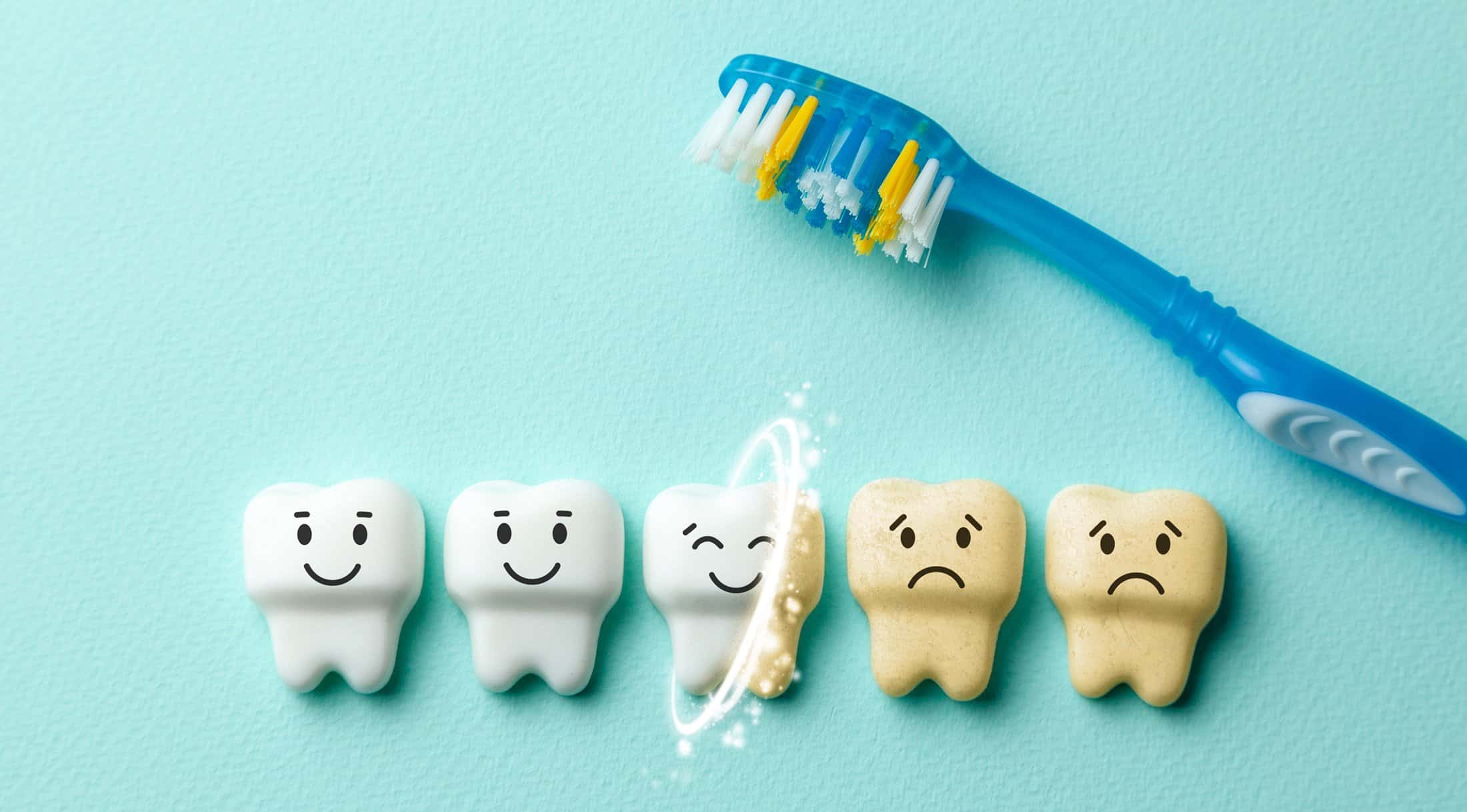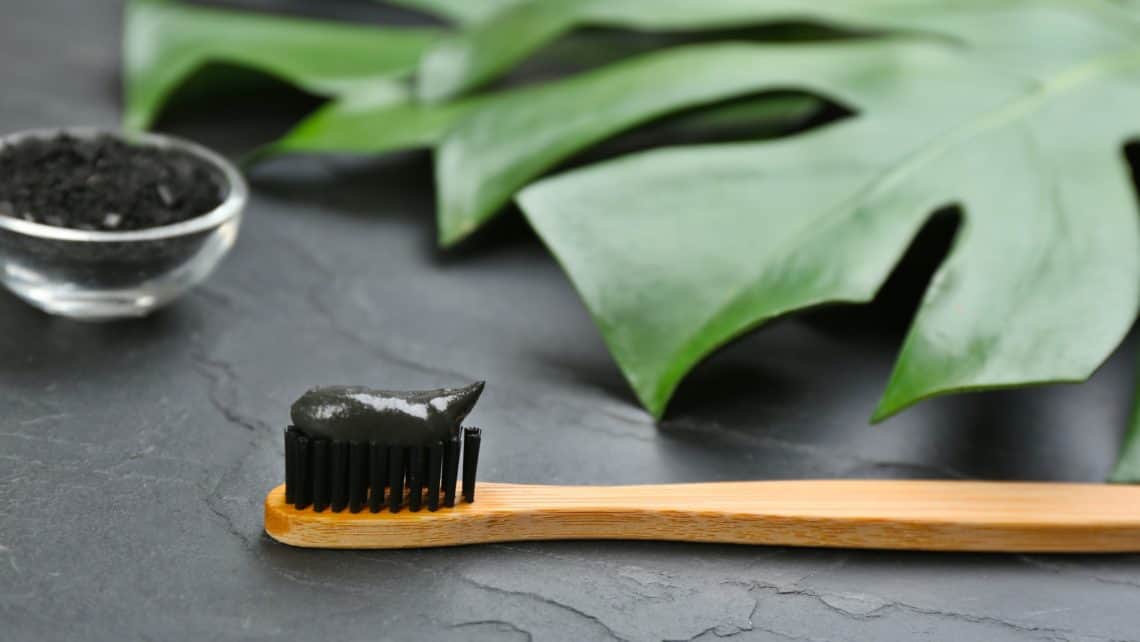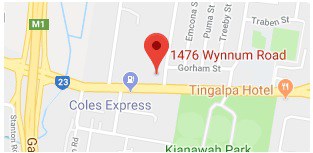It is no secret that everyone wants whiter teeth. According to research conducted across 150 images of men and women, the pictures of people with white even smiles were preferred over others. Teeth whitening is therefore a multi-million-dollar industry in the quest for the ultimate Hollywood smile.
There are a multitude of teeth whitening procedures available, from in-clinic teeth whitening to DIY at home teeth whitening kits. We also find a myriad of teeth whitening products on supermarket shelves. However, it is always advisable to seek the advice of your dentist before you try off the shelf teeth whitening products.
Is teeth whitening dangerous?
Teeth whitening is safe if it is done, provided, or monitored by a registered dental professional. A dentist ensures that you have a custom fitted tray which will keep the whitening agent in contact with the teeth and away from the mouth’s delicate soft tissues such as the gums and the oral mucosa (skin of the mouth).
Non-dentists can provide whitening agents that release up to 6% hydrogen peroxide. According to Australia’s Poisons Standard, hydrogen peroxide concentrations greater than 6%, and carbamide peroxide greater than 18% are poison and their use is prohibited by anyone except dental professionals.

Teeth-whitening products sold as kits on social media and auction sites, promise “brighter teeth” and to “remove stains” and “fight plaque and prevent cavities”. Such teeth whitening products are thought to possibly cause cancer and to a lower extent burn your mouth and throat. According to Dr. Hugo Sachs, president of the Australian Dental Association (ADA), there have been several cases of people encountering irreversible treatments to their teeth due to unlicenced people like beauticians providing the treatment. Such chemicals can end being carcinogenic because they are not used under controlled scenarios.
A recent Australian Dental Association study found that over 68% of respondents aged 18-35 who had whitened their teeth had bought a kit from a non-dental source (such as a website, chemist, or beauty store) rather than a dental professional. Celebrity influencers on social media often cause more harm when they publish pictures showing their white teeth with whitening kits. Dental experts are urging parents to exercise caution before allowing children to use at-home teeth whitening products, warning the social media-driven pursuit of the “perfect” smile is damaging for their oral health.
There is a strong opinion among dentists to regulate teeth whitening products and charcoal toothpaste sold in supermarkets. It was found out in a study published in the British Dental Journal in May that charcoal-based products could cause more harm than good such as scratching off the protective layer on teeth, leaving them bare and exposing cracks in teeth to further damage.

How to Safely Whiten Teeth
If you are interested in a whiter smile, follow these 3 steps to safely use teeth whitening products.
Talk to your dentist. Your dentist can examine your teeth and prescribe a safe way of teeth whitening after considering any issues you may have like cavities or gum disease. They can advise on the best whitening treatment, any potential adverse effects and answer any of your questions.
Look for the ADA Seal of Acceptance. If you are concerned about the safety of a whitening product, look for the ADA Seal of Acceptance. The ADA has reviewed independent studies and approved many whitening toothpastes and some whitening strips for safety and effectiveness.
Follow product instructions. Each product comes with a unique set of instructions for the duration and frequency of use. Overuse or incorrect use of the product may put you at higher risk for side effects like gum irritation or tooth sensitivity.
Is teeth whitening safe? Yes, it can be. Simply handle your whitening protocol like any medical treatment – listen to your dentist, follow instructions, and watch for unwanted side effects. Then, you can safely and effectively whiten your teeth and brighten your smile.
Are you after teeth whitening?
Book a consultation by calling our friendly team on 3390 6100 or by emailing us. Or click here to book your appointment online.












Leave a Comment